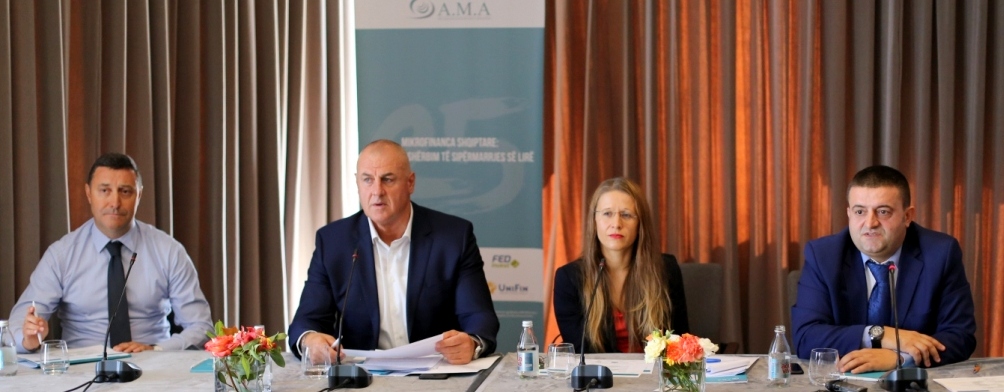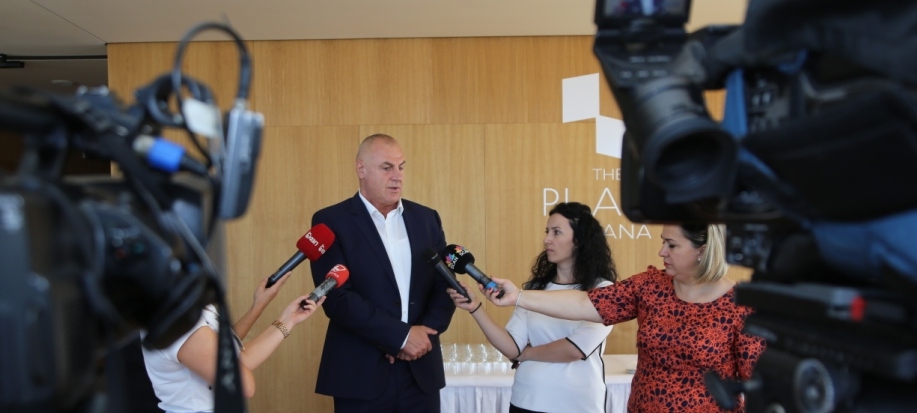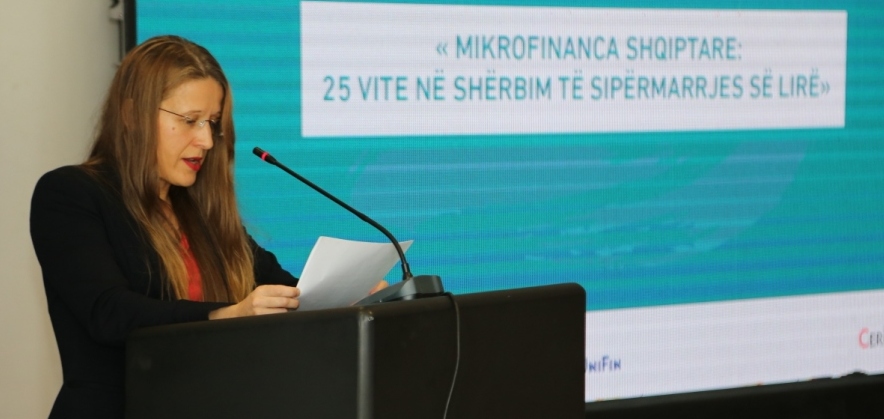Albanian Microfinance: 25 Years in the Service of Free Entrepreneurship
The Albanian Microfinance Association (AMA) brings together the most consolidated Albanian MFIs with an outstanding loan portfolio of approximately USD 120 million and a client outreach of over 61,000. With a current GDP per capita of USD 4,146 and 45% of its population living in rural areas, Albania shows a strong demand for microfinance products. Most of Albanian MFIs follow a socially-responsible policy targeting financially-excluded individuals and disadvantaged areas.
With the support of the Microfinance Centre and within the Social Performance Fund framework initiative, the AMA organized a workshop on the social dimension of its activity in Albania, which dates back to 1992. This September event was attended by researchers, private and public economists, representatives of the Bank of Albania, representatives of the donor community and various local civil society partners.
Participants highlighted the extremely important role that microfinance has played in the Albanian economy over the years. Totalling close to 350,000 loans, Albanian MFIs have injected more than USD 1 billion into the economy, directly impacting self-employed individuals, small entrepreneurs, farmers, craftsmen and unemployed individuals.
Mr. Bajram Muça, Chairman of the Albanian Microfinance Association declared: “We have been active in the market for 25 years, representing more than 1,100 staff, 220 branches, and supporting employment for hundreds of thousands of individuals. These figures make us proud. We have influenced the life of ordinary Albanians in urban and rural areas, in mountainous and coastal areas, from the south to the north. Today we represent 20% of the total number of active loans in the country. Microfinance serves those individuals who have embraced honest work and free entrepreneurship as their lifestyle“.
The event also featured Ms. Katarzyna Pawlak, Deputy Director of the Microfinance Centre, who recalled the importance that the European Union attaches to microfinance and particularly to the adequate funding of farmers and small entrepreneurs. She noted that “Albania is the birthplace of microfinance in Europe, and serves as important example of a well-developed and balanced sector“.
Statistical data presented during the workshop highlighted the potential long-term viability of the microfinance sector in Albania considering that out of 150,000 active businesses in the country, over 95% of them employ fewer than four people. Likewise, the vast majority of its 350,000 farms start and remain small, with an average landholding of 1.2 ha (10 times less than the EU average)—this in the context of the fact that agriculture and tourism represent 35% of the Albanian GDP.
Local MFIs present reaffirmed their ambition to promote a social model for microfinance in the future and to focus on new fragile categories such returning immigrants. They also addressed public authorities with a specific request to create a dedicated guarantee fund for entrepreneurship. Another proposal emerging from the event related to the creation of synergies with public infrastructure investments (rural roads, urban investments, or water infrastructure) so that they are accompanied by targeted funding schemes for local entrepreneurs and farmers. Likewise, the exchange of databases between public authorities and MFIs, in particular for those sectors with high informality such as the family hotel sector, may provide more efficient channeling of tailor-made products. Other topics related to the support for businesses run by young people, the lack of knowledge of EU funding schemes; the potential upgrade of the sector into micro-banking institutions etc.



